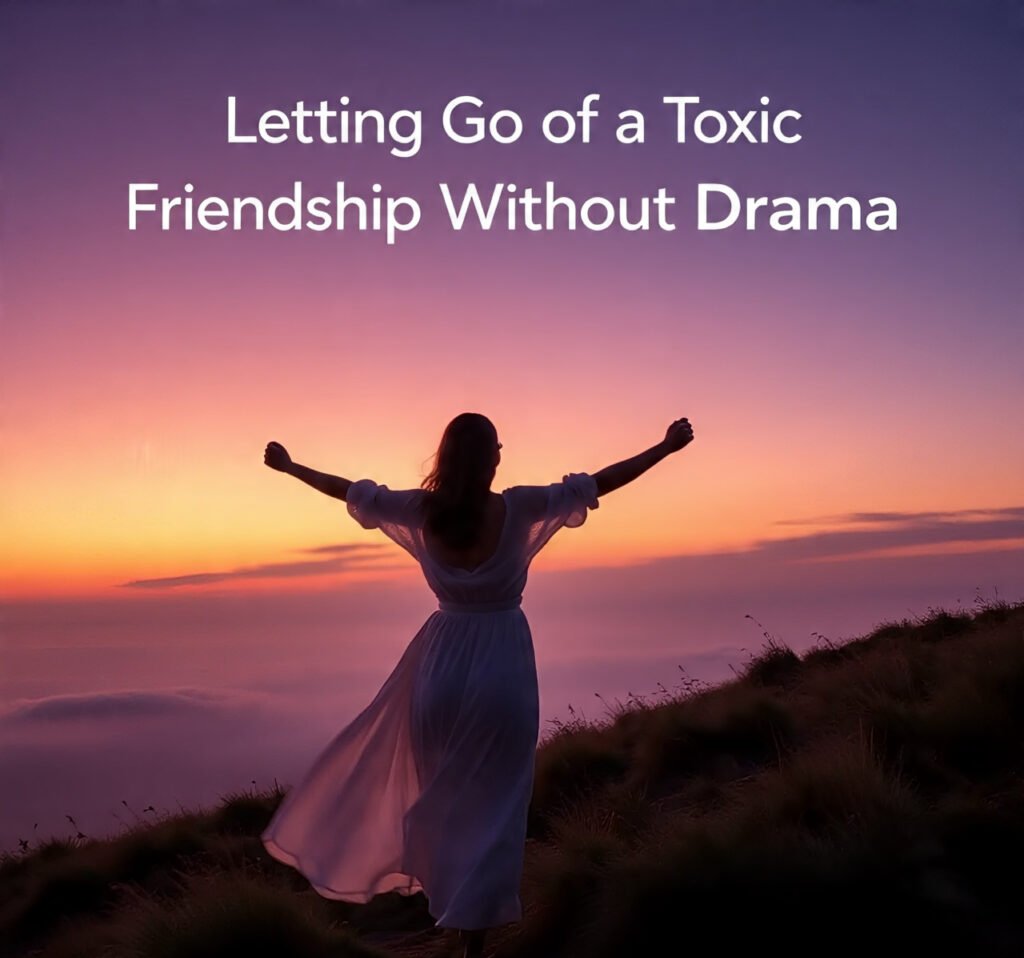"Letting Go of a Toxic Friendship Without Drama"

You’re Not Alone — This Happens a Lot in Early High School
Starting high school brings big shifts. Old friendships are tested, new ones form, and people start showing sides of themselves you hadn’t seen before. Your friend’s toxic behavior — bad-mouthing others, being two-faced, and reacting poorly to confrontation — sounds emotionally draining. But this kind of behavior is unfortunately not uncommon in groups going through change.
Alison Roy (who you mentioned) is right: noticing the shift and reflecting on it with compassion shows your emotional maturity.
You Are Not Responsible for Her Feelings or Reactions
This part is key. Sensitive or not, dishonest or not — you are not responsible for how your friend behaves, or how she reacts to boundaries. You are responsible for protecting your peace and acting with kindness and integrity.
Trying to fade out quietly is often the first step — and it’s fine that you tried that. But if it’s not working and you still feel stuck, it may be time to be clearer, even if it’s uncomfortable.
You Don’t Owe Anyone a Dramatic Confrontation
You don’t have to have a “big talk” or declare an end to the friendship unless you want to. Instead, try slowly detaching with consistent actions:
Set limits: Don’t engage in gossip, and gently change the subject or walk away.
Keep it short: Reply politely but briefly when she reaches out, and stop initiating contact.
Spend time with others: Invest in new or healthier friendships. This naturally shifts the dynamic without needing drama.
Over time, your actions will send the message more clearly than words might.
If You Do Want to Say Something, Keep It Calm and Simple
If you feel like you need to say something, keep it short and non-blaming. For example:
“I feel like we’ve grown in different directions, and I think we need some space. I don’t want drama or to hurt you — I just think this friendship isn’t working for me anymore.”
Don’t argue, justify, or get pulled into a debate. You’ve said your truth. That’s enough.
When Adults Don’t Help, Find the Right Ones Who Will
It’s deeply frustrating when teachers don’t listen or take her side. But as you said, teachers are often focused on academics and order, not subtle social issues. If you need to talk to an adult, look for someone else:
A school counselor
A trusted relative
A youth worker or support line (some areas have anonymous support for teens dealing with difficult friendships)
Sometimes, just talking it through with someone who validates your feelings helps a lot — even if they don’t solve it.
Let This Be a Start, Not an End
This experience, while painful, is teaching you how to recognize unhealthy dynamics, how to assert yourself, and how to choose healthier connections. That’s a powerful life skill.
And the silver lining? New, better friendships are often just waiting for the space to open up
